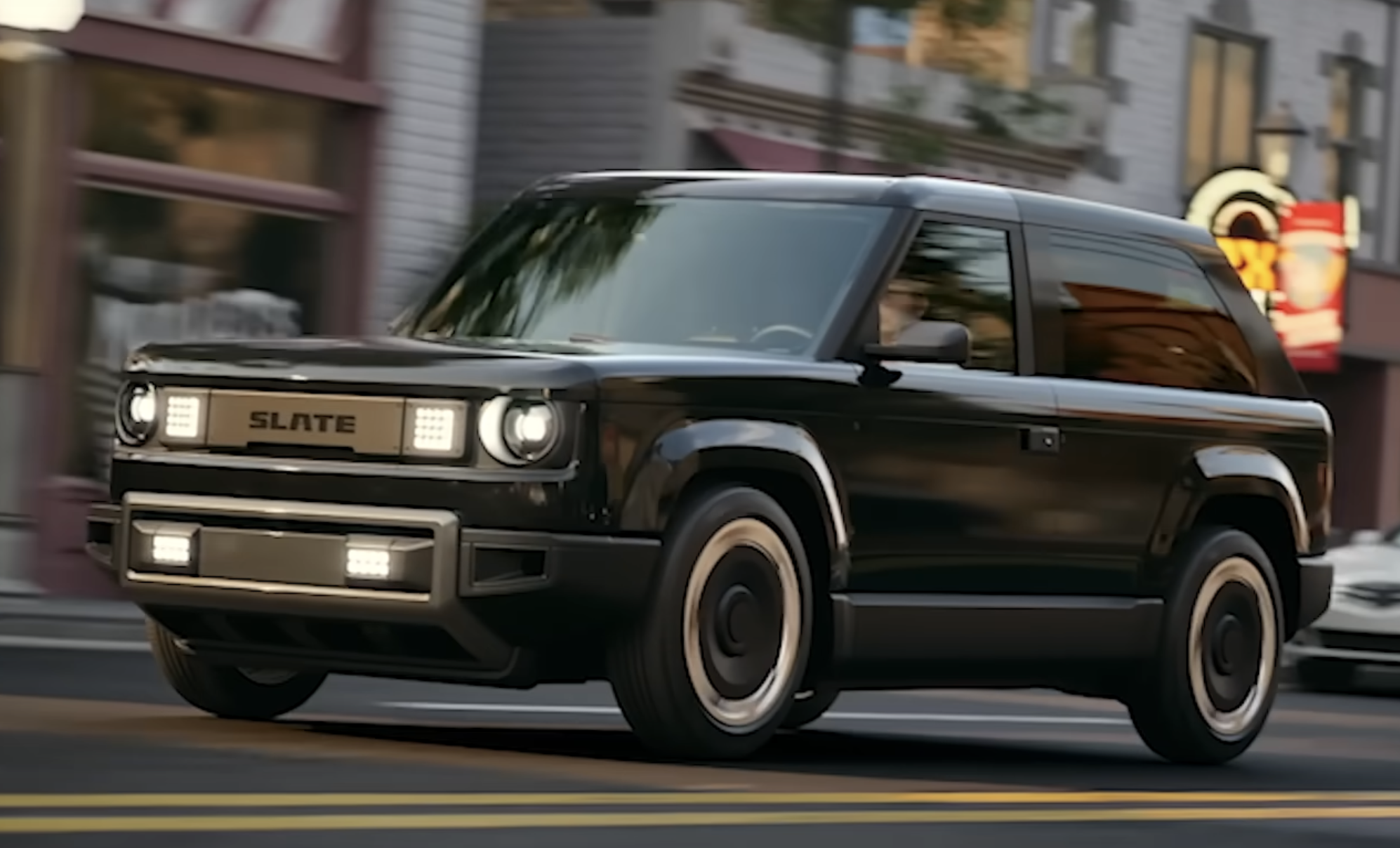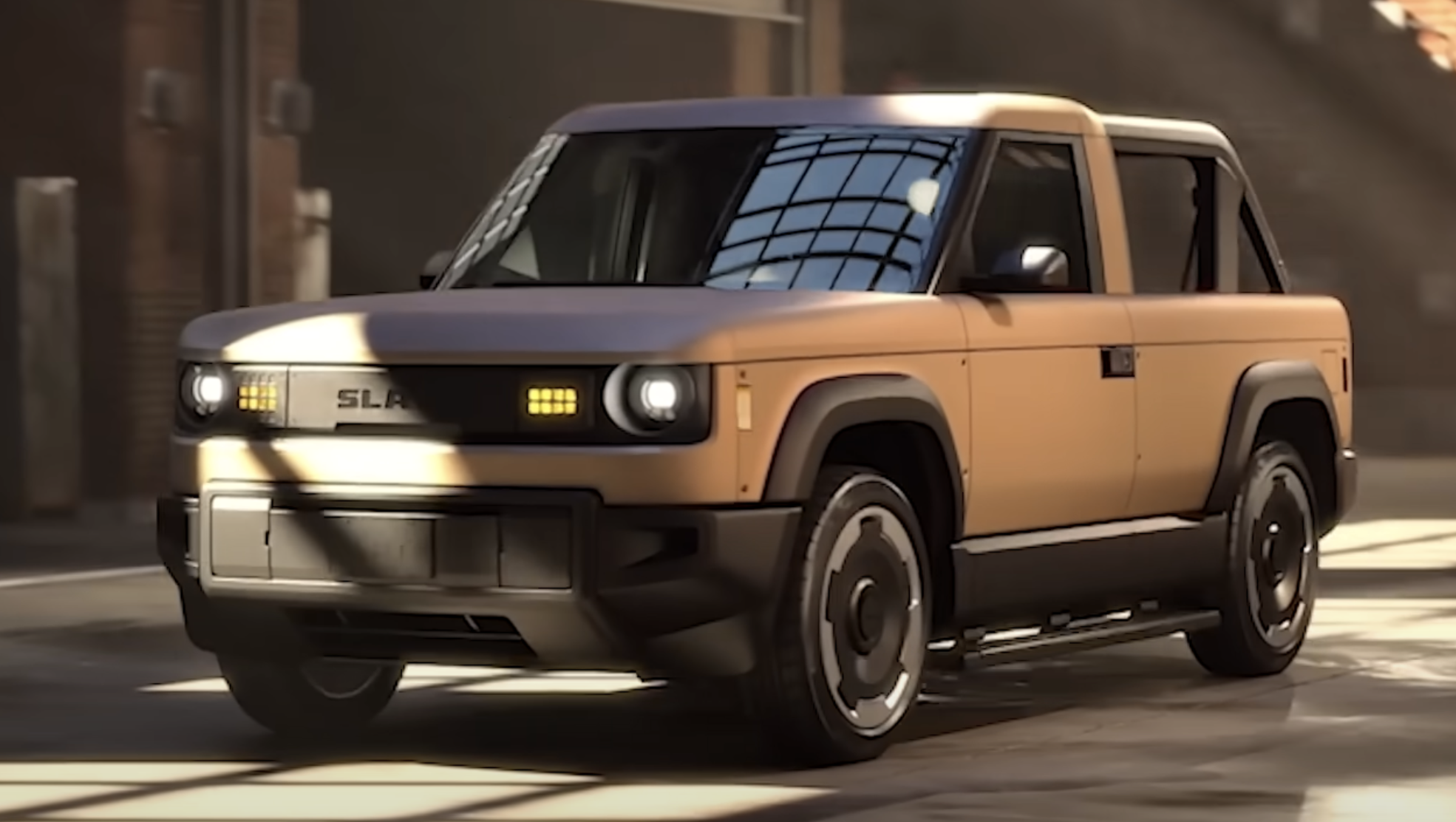SLATE $20K Electric Pickup

Slate is an electric pickup truck that ships to you as empty as an Amazon package before you fill it with stuff you actually want.
This whole thing started making waves when Slate came out of stealth mode with probably the most polarizing vehicle concept since... well, since Tesla promised us self-driving robotaxis that still haven't materialized. But unlike those lofty autonomous promises, Slate's pitch is refreshingly simple: give you the absolute bare minimum truck for $20K (after tax credits) and let you build it into whatever you want.
What Even Is This Thing?
Picture this: you order a truck and it shows up looking like it escaped from a 1990s sci-fi movie. No paint, just molded plastic. No radio, no touchscreen, no power windows - literally hand-crank windows like your dad's old pickup. It doesn't even have a stereo, but it does come with a phone mount and a speaker mount so you can just throw a Bluetooth speaker in there. Very DIY energy.
The base model gets you a two-seater with a 5-foot bed, rear-wheel drive, about 150 miles of range, and approximately the acceleration of a really motivated golf cart (0-60 in 8 seconds). But here's where it gets interesting - you can bolt on literally whatever you want. Want it to be a crossover?
 Add a roof and back seats. Want all-wheel drive? They'll do that. Want actual paint instead of looking like an unpainted plastic model? You can wrap it or pay extra for that too.
Add a roof and back seats. Want all-wheel drive? They'll do that. Want actual paint instead of looking like an unpainted plastic model? You can wrap it or pay extra for that too. 
Jeff Bezos didn't just throw some pocket change at this - he's backing it alongside the guy who owns the LA Dodgers and other serious investors. Which makes sense when you think about it. Bezos basically built Amazon on the idea of "give people exactly what they want, nothing they don't, and make it cheap." Slate is trying to do the same thing with trucks.
The whole business model screams Amazon: start with the cheapest possible base product, then make your real money on all the add-ons. It's like how you go to buy a phone case on Amazon for $5 and somehow end up spending $50 on accessories you didn't know you needed.
Why People Are Calling It Revolutionary
The fans are really into this concept, and honestly, I get it. Most people buying trucks in America never use them for actual truck stuff - they're just expensive status symbols that happen to have beds. So why not let people start cheap and only pay for what they actually want?
Plus, there's something refreshing about a car company that's like "we're not going to force a $2,000 infotainment system on you that'll be outdated in two years." Want navigation? Use your phone. Want music? Bring a speaker. It's almost... honest?
The Cool Factor: It's two feet shorter than a Ford Maverick, so you can actually park it in cities. The modular design means you could theoretically have a different vehicle every weekend depending on what you bolt onto it.
Why Others Think It's Doomed
Here's the thing though - this has "iPhone 12 mini" energy written all over it. Everyone online will say "this is exactly what I want!" and then actually go buy the bigger, more expensive option anyway. Americans have consistently shown they want four-door trucks, not two-door ones. The Jeep Wrangler went from being mostly two-door to 85% four-door sales once they offered both.
And let's talk about that $20K price tag. That's only if you qualify for the full federal tax credit, which might not even exist by the time this thing ships in late 2026. The real base price is $27,500 - which is the same as a Ford Maverick that comes with, you know, actual doors and a radio and paint.
The Reality Check: Once you add all the stuff most people actually want (paint, a stereo, maybe some power windows), you're probably looking at $35K+. At that point, why not just buy a normal truck?
The Modular Problem
This whole modular concept reminds me of Google's Project Ara - the modular smartphone that was going to let you swap out pieces as needed. Everyone thought it was brilliant until they realized that most people just want their phone to work, not to be a weekend engineering project.
Slate's hoping cars are different from phones, and maybe they are. Car modifications are already a huge hobby, and the idea of "flat-pack" vehicle accessories that ship to your house is pretty appealing. But there's a difference between choosing your options when you buy a car and actually having to install stuff yourself.
Will It Actually Happen?
Here's what's different about Slate compared to other EV startups: they're not promising to reinvent physics. They're not claiming their truck will fly or drive itself or run on good vibes. It's just a simple electric truck with a modular design. That's... actually achievable?
They've got a factory in Indiana, serious backing, and a plan to ship in Q4 2026. The plastic body panels are apparently way cheaper to manufacture than traditional metal ones, and skipping the paint process saves even more money. From a manufacturing standpoint, this might actually work.
The Bottom Line
Slate is basically asking: "What if we made the Spirit Airlines of trucks?" And honestly, Spirit Airlines makes money because some people really do just want to get from point A to point B as cheaply as possible, even if it means paying extra for literally everything else.
The question is whether enough truck buyers think the same way. My guess? They'll get plenty of $50 reservations from people who think this is cool, but actually converting those to sales when the full price becomes clear... that's going to be the real test.
Either way, you've got to respect the audacity of Jeff Bezos looking at the EV market and deciding what it really needs is a truck that comes with absolutely nothing. It's either going to be a brilliant disruption or a very expensive lesson in why cars come with doors. Guess we'll find out in 2026!